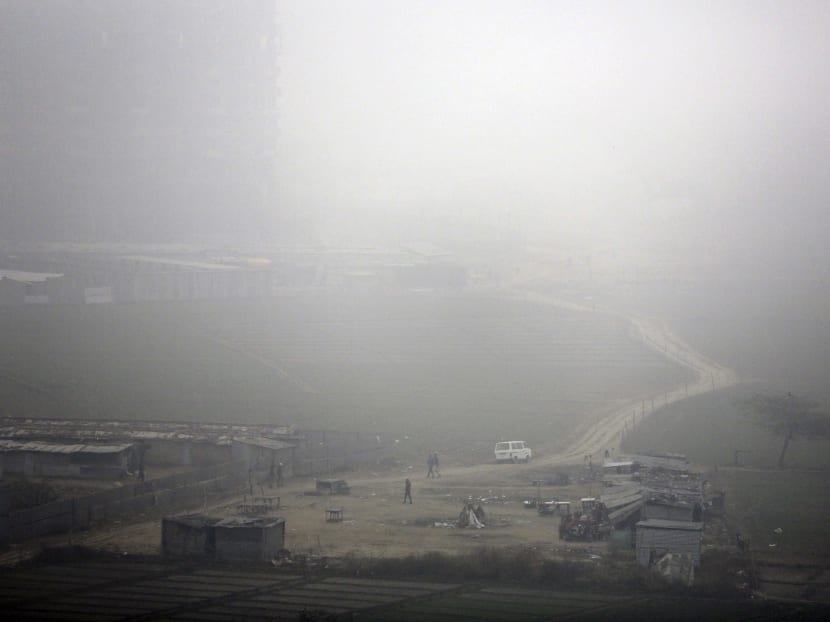India launches phone app to monitor New Delhi’s pollution
NEW DELHI — The Indian capital, labouring under the label of being the world’s most polluted city, is trying something new to help clean up its air.

Farmers walking near fields during a foggy, polluted morning in the outskirts of New Delhi. AP file photo
NEW DELHI — The Indian capital, labouring under the label of being the world’s most polluted city, is trying something new to help clean up its air.
A smartphone application that allows citizens to report the presence of construction dust or the burning of leaves and garbage in public parks to authorities was launched Friday (Oct 21).
The “Hawa Badlo,” or “Change the Air”, app has two versions. One allows citizens to take pictures of likely pollutants. The other allows authorities to investigate and act on valid complaints.
Over the last few years, New Delhi has struggled with ways to handle the pollution, which becomes especially obvious during the colder winter months as the city’s air turns to a grey haze.
The newest measure, the phone app, was launched by the Environmental Pollution (Prevention and Control) Authority, a monitoring group set up on the order of India’s Supreme Court in April.
Over the last decade or so, India, like neighbouring China, has seen pollution spiral as its economy has boomed and it has continued to rely on burning coal to generate electricity. The number of vehicles on the road has skyrocketed, while hundreds of millions of impoverished people still use wood, kerosene or whatever they can grab at the garbage dump to build fires for cooking or keeping warm on winter nights.
Over the last two years, the government has tried a slew of measures to control the air pollution. These include stricter emission norms for cars and a tax on diesel-fuelled trucks that enter the city.
The city has also attempted to limit the number of cars on the roads during the winter months, when the air quality is at its worst. The city authorities twice ordered cars with odd and even numbered license plates to ply on alternate days for a period of two weeks each. AP





